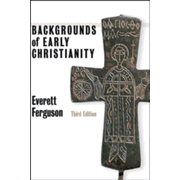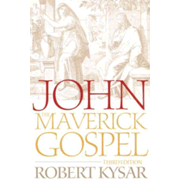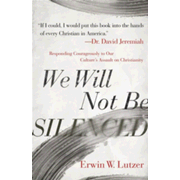FOR
THE Third
Sunday of Lent we read a lesson from the Gospel According to Saint John. Within
this text for the day, we find that during his earthly ministry Jesus
confronted high financial powers of this world who distorted human faith
expression. These persons changed the right worship of God into religions of worldly profit.
The
Passover of the Jews was at hand, and Jesus went up to Jerusalem. In the temple
he found those who were selling oxen and sheep and pigeons, and the
money-changers at their business. And making a whip of cords, he drove them
all, with the sheep and oxen, out of the temple; and he poured out the coins of
the money-changers and overturned their tables.
And he told those who sold
the pigeons, “Take these things away; you shall not make my Father’s house a
house of trade.” His disciples remembered that it was written, “Zeal for thy
house will consume me.”
The Jews then said to him, “What sign have you
to show us for doing this?” Jesus answered them, “Destroy this temple, and in
three days I will raise it up.”
The Jews then said, “It has taken forty-six
years to build this temple, and will you raise it up in three days?”
But he spoke of the temple of his body. When
therefore he was raised from the dead, his disciples remembered that he had
said this; and they believed the scripture and the word which Jesus had spoken.
(John 2:13-23)
 |
Backgrounds of Early Christianity, Third Edition By Everett Ferguson |
Paying
High Maintenance?
Written from the cusp of time around the end of the first century, we read this text from John. Conflict had erupted for decades between the traditions within the faith of Israel and the beliefs of Christians. The setting he therefore
wrote about concerned the distortion of Israel’s sacrificial theology. Our
blessed writer told of Jesus assisting at the wedding at Cana. Afterward he related
that our Lord went to Jerusalem temple for the annual observance of the
Passover. Upon Jesus’ arrival, as told by this disciple, he assailed the
money changers that were doing daily business within the “Court of the
Gentiles”.
Discussion has since occurred among biblical
authorities over the timing of this particular Passover visit. Some say that
Jesus went to observe the holy observance several times at the temple and the event is recorded here as happening very early in the young rabbi’s
ministry. However, a similar event is witnessed as occurring just before the
crucifixion… as we read of such in the synoptic gospels of Mark, Matthew, and Luke
(see Mark 11:15-19, Matthew 21:12-17, and Luke 19:45-48). Thus having a
differing time sequence, some scholars contend what we read here represents two
separate observances that Jesus attended. Conversely, others say that the event
is the same, singular confrontation that was simply placed in a differing sequential order
by a creative writer. As a pastor studying the Johannine literary styling which is noted
as rich in dramatic tension and filled with double meanings, I humbly contend a bit
for a latter thought. However, in the late first century the writer was challenged by dispersed Pharisees... and subsequently here the Christian community emphasized Jesus' Hebraic fidelity. Thus they portrayed him as following a habit of annual attendance to the Passover observances.
 |
John, the Maverick Gospel, Third Edition By Robert Kysar |
Notwithstanding this allegiance dilemma, the emphasis rests in the second paragraph in the writer’s relating of the contentious scene. There John revealed the words of our Lord as boldly chastising, “…you shall not make my Father’s house a house of trade.” By doing so, the author of John highlighted that Jesus consistently stoked the fire in the cauldron of economic combat. Consequently, according to John’s gospel, by claiming God as "my Father"... Jesus heightened the tensions between himself and the temple powers.
Chastisement was properly earned by the temple powers, in that for a hefty price...
the hucksters working the temple courtyard tables could change Roman money
for acceptable Israelite coinage. Using the latter coinage, a contributor could support
the temple upkeep. Also, a sinful petitioner could buy a
“sacrificially-approved” grain, bird or animal offering, depending on the
severity of the sin confessed. In any case, the coinage trade and offering purchase
was likely tilted heavily toward the trader’s purse, and thus did not favor the
dusty foreign traveler. Hence it was considered by Jesus as a unholy practice.
We find in John and also the other gospel witnesses that our Lord Jesus was thus described as whipping a gauntlet slap to the face of the moneyed class. This had been foretold by the writings of the prophets…
We find in John and also the other gospel witnesses that our Lord Jesus was thus described as whipping a gauntlet slap to the face of the moneyed class. This had been foretold by the writings of the prophets…
“For
he is like a refiner’s fire and like fullers’ soap; he will sit as a refiner
and purifier of silver, and he will purify the sons of Levi and refine them
like gold and silver, till they present right offerings to the Lord. Then the offering of Judah and
Jerusalem will be pleasing to the Lord
as in the days of old and as in former years.
(Malachi 3:2b-5)
Jesus challenged the temple authorities by
berating their economic practices. They had turned a proper religious sacrificial
act into financial exploitation. Upon being questioned concerning his authority to do the
courtyard cleansing, Jesus said that if they destroyed the temple he would
raise it up in three days. By saying this, he spawned much conversation… but received
little understanding.
As revealed by the writer of this gospel, we read that even the disciples did not comprehend at that time what Jesus meant. Our Lord was talking about the temple of his body. The author related at the end of our reading that they did not understand the symbolism until after the Resurrection had already occurred.
As revealed by the writer of this gospel, we read that even the disciples did not comprehend at that time what Jesus meant. Our Lord was talking about the temple of his body. The author related at the end of our reading that they did not understand the symbolism until after the Resurrection had already occurred.
In answer to Jesus’ challenge to temple authorities about
established practice, we find historically that the money changers soon set
their tables back up. Yes, they only left the courtyard temporarily. After the
dust settled they continued the practice.
As counterpoint to my position that this is the same incident found at another time in the synoptic gospel writings, historicity lays ground for the argument that the lashing of the moneylenders may have occurred more than once. In either case, it was soon business as usual for many years after Jesus drove them out.
"Why did John include this account? The crucifixion, you see, was thought by the authorities as sufficient cure for the troublemaker. However, what had become clearly decisive for the Christian community of John is that the death and Resurrection of Jesus erased the necessity for any animal sacrifice. The practice was thus negated completely by Jesus, He did this by offering himself as the eternal Lamb of God sacrificed once and for all for our salvation. For Israelites who did not believe in him, however, the sacrificial system continued until the destruction of the temple by the Roman army some thirty years later. Then because of the destruction and desecration of the altar the practice finally ended there.
As counterpoint to my position that this is the same incident found at another time in the synoptic gospel writings, historicity lays ground for the argument that the lashing of the moneylenders may have occurred more than once. In either case, it was soon business as usual for many years after Jesus drove them out.
"Why did John include this account? The crucifixion, you see, was thought by the authorities as sufficient cure for the troublemaker. However, what had become clearly decisive for the Christian community of John is that the death and Resurrection of Jesus erased the necessity for any animal sacrifice. The practice was thus negated completely by Jesus, He did this by offering himself as the eternal Lamb of God sacrificed once and for all for our salvation. For Israelites who did not believe in him, however, the sacrificial system continued until the destruction of the temple by the Roman army some thirty years later. Then because of the destruction and desecration of the altar the practice finally ended there.
 |
We Will Not Be Silenced: Responding with Courage to Our Culture's Assault on Christianity By Erwin W. Lutzer |
What
Right Sacrifice?
What does the narrative of this
story teach we Christians living today? Moving forward to the time of biblical
telling by John toward the end of the first century, I query whether the gospel could
have been a warning held high. Was this a warning for the early Church
concerning the adoption of certain emerging sacrificial practices? Did distorted,
demonic spirits of the dispossessed temple cult emerge in the infant Christian Church living in the scattered areas of the Roman Empire? Was this historical tendency finding its way into cultic practices of Roman Catholicism. I contend that John indeed
warned the one apostolic catholic Church of this during the late-first century.
Remember that within the first two chapters of the gospel, through the words and deeds of Jesus revealed, John warned all concerning the dangers present in the rising of heresy. Here we must note that early Orthodox and Roman church oversight structures were later modeled after the hierarchical structures of such as the Roman Empire government and the temple political structures. Thus the Church became target for dangerous sacrificial economic patterns. All of this occurred though the psalmist had clearly pointed out…
Remember that within the first two chapters of the gospel, through the words and deeds of Jesus revealed, John warned all concerning the dangers present in the rising of heresy. Here we must note that early Orthodox and Roman church oversight structures were later modeled after the hierarchical structures of such as the Roman Empire government and the temple political structures. Thus the Church became target for dangerous sacrificial economic patterns. All of this occurred though the psalmist had clearly pointed out…
The sacrifice acceptable to God is a
broken spirit;
a broken and contrite heart, O God, thou
wilt not despise.
Do good to Zion in thy good pleasure;
rebuild the walls of Jerusalem,
then wilt thou delight in right
sacrifices,
in burnt offerings and whole burnt
offerings;
then bulls will be offered on thy altar.
(Psalm 51:17-19)
In conclusion, we of the Church today must also
be keenly aware of dangers present in governance patterns which distort the message
of faith. These dangers may tempt and improperly profit the powerful at the
heights of the hierarchy. As we travel across historic empires, we see
great cathedrals that rivaled the structural greatness of the Jerusalem temple.
We need thus ask ourselves, “By what sense of sacrifice do they stand? Do they willingly witness
to God’s greatness.., or do they reflect a perversion of the faithful heart? Often,
a distortion of faith expression too easily occurs as a Christian denomination
works to proclaim God’s gracious gifts. Each structure must therefore be tested
continually before the power of the Holy Spirit. We need work toward "end times"
testing these demonic spirits using the Word in both Law and Gospel… in order that we keep
first things first.
You see, scripture reveals that because we are sinful before our
Creator, and thus tend to corrupt all things. We must hold tightly to Truth. We
are indeed saved only by grace through faith in Christ Jesus. This faith knowledge
was freely given to the Church by the power of the Holy Spirit. In this respect
then, since our debts were paid once and for all by Jesus Christ crucified, and
the knowledge of the Resurrection was given freely for all by the power of the
Spirit, we find it no longer necessary to pay financial penance. We need build no
pyramids, no tower of Babel, nor huge temples with great priesthoods
clothed in sacrificial attendance. These structures and attending social ministries do not
allow us to climb our way to heaven. If we choose to do these wonderful things,
let us be called to do so not out of glorifying or justifying ourselves.., but only out of
our thanksgiving to God.
In ministry then, knowing that God demands no
complex towers or priestly hierarchy but instead calls us to first come forward with contrite
hearts, we are called thus to let incense rise from the yearnings deep within our sorrowful
hearts. We must be ready to urge one another to cut through the bull and burnt
offerings… and give to the poor and needful while not letting our one grabby
hand know what the other is doing. We are properly admonished by the
lightning sound of that cracking lash of the Lord’s whip found in the Gospel of John. Let us pray that the modern
Church responds to our Lord’s sharp command freely, and leaves behind ornate empty temples
of selfish imaginations.
May the Lord guide you to repentance and thanksgiving during these days of Lent.




No comments:
Post a Comment